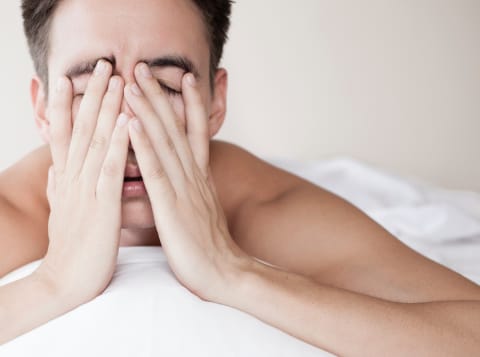Quetiapine (Seroquel) is a medication designed to treat the symptoms of psychosis in people affected by schizophrenia, as well as the symptoms associated with depression and bipolar disorder. Previous studies have also indicated that the medication may have usefulness in the treatment of certain disorders related to substance abuse, including a condition called cannabis withdrawal. In a study published in November 2013 in the journal Addiction Biology, researchers from Columbia University used laboratory-based testing with human subjects to assess quetiapine’s potential benefits in cannabis withdrawal treatment.
Quetiapine Basics
Quetiapine belongs to a class of antipsychotic medications called atypical antipsychotics. This class gets its name because it contains relatively new antipsychotic substances that generally produce fewer side effects than an older class of medications called typical antipsychotics. When used alone, quetiapine can help ease the psychotic symptoms that normally predominate in people diagnosed with schizophrenia. When used in combination with other medications, it plays a significant supporting role in easing the effects of the manic and depressive episodes that characterize bipolar disorder, as well as the depressive episodes that characterize major depression. Available forms of the medication include tablets and extended-release tablets that release their contents relatively slowly over time.
Cannabis Withdrawal Basics
Cannabis withdrawal appears in people addicted to or dependent on cannabis (marijuana, hashish, hashish oil) who reduce or eliminate their drug intake and go through a temporary period of brain/body detoxification. Symptoms commonly associated with this withdrawal include a depressed mental state, a temporary decline in appetite, a related decline in body weight, sleeplessness, restlessness, nervousness, muscle tremors, headaches, stomach pain and a rise in angry, aggressive or irritable moods. The American Psychiatric Association officially designated cannabis withdrawal as a diagnosable condition in May 2013. Prior to that time, researchers and addiction specialists had debated whether cannabis users could experience withdrawal; however, considerable evidence now supports the condition’s existence. According to the results of a study published in September 2013 in the journal Drug and Alcohol Dependence, most people who successfully establish abstinence from cannabis intake manage to avoid relapsing back into drug use. However, in some individuals, the presence of withdrawal symptoms may help trigger a relapse before cannabis abstinence is achieved. Factors that increase a recovering cannabis user’s relapse risks include having a current or prior history of other drug problems; having a current history of bipolar disorder, major depression or an anxiety disorder; and having a prior history of a personality disorder or a childhood condition called conduct disorder.
Usefulness of Quetiapine
Quetiapine is potentially useful in addressing cannabis withdrawal for a couple of reasons. First, it helps correct some of the chemical imbalances in the brain that support the presence of addiction. It also produces a number of effects—including anxiety reduction, appetite stimulation, mood improvement and an encouragement of sleepiness—that appear to counteract cannabis withdrawal’s impact. In the study published in Addiction Biology, the Columbia University researchers gave quetiapine to seven individuals going through cannabis withdrawal. Another seven participants received an ineffective placebo medication designed to mimic quetiapine’s appearance. Initially, all 14 individuals participated on an outpatient basis; however, for the last week of the study, they were treated on an inpatient basis. During the inpatient phase, all of the participants had the opportunity to smoke marijuana under conditions meant to recreate real-world risks for a cannabis relapse. After completing the inpatient phase, the researchers found that the study participants who received a placebo medication experienced significant symptoms of cannabis withdrawal. Compared to these individuals, the participants who received quetiapine experienced withdrawal reduction benefits that included self-reported mood improvements, a higher level of food intake and an improved ability to fall asleep and stay asleep. However, in a finding of critical importance, the researchers concluded that the quetiapine users experienced a substantial increase in their level of drug craving during the withdrawal process. In addition, when exposed to the conditions designed to create the possibility of a drug relapse, the quetiapine users restarted their cannabis use at an unusually high rate.
Significance and Considerations
Quetiapine produces some clear benefits for easing the effects of cannabis withdrawal. However, the authors of the study published in Addiction Biology note, the medication’s ability to boost drug cravings and encourage a drug relapse offset any potential benefits, at the very least. For this reason, they do not recommend the use of quetiapine as a treatment for recovering cannabis addicts going through the withdrawal process.

